★★★★
 “When witches don’t fight, we burn.”
“When witches don’t fight, we burn.”
 While few shows on television are more twisted, perhaps the most bizarre thing about American Horror Story is that the creators of the franchise, Ryan Murphy and Brad Falchuk, are best known for that paragon of liberal smugness, Glee. It’s hard to think of two series more diametrically opposed, with AHS being deliciously mean-spirited, in a way much closer to Murphy/Falchiuk’s previous show, Nip/Tuck, but adding a far greater degree of viciousness. To steal a line once aimed at Margaret Thatcher by Denis Healey, AHS could fairly be accused of “glorying in slaughter,” as it romped through its first two seasons, set in a Los Angeles haunted house and New England lunatic asylum respectively. The stories it told were independent, albeit with a number of actors who appeared in both, playing different characters. Most notable among these was Jessica Lange, who showed exactly why she had won two Best Actress Oscars.
While few shows on television are more twisted, perhaps the most bizarre thing about American Horror Story is that the creators of the franchise, Ryan Murphy and Brad Falchuk, are best known for that paragon of liberal smugness, Glee. It’s hard to think of two series more diametrically opposed, with AHS being deliciously mean-spirited, in a way much closer to Murphy/Falchiuk’s previous show, Nip/Tuck, but adding a far greater degree of viciousness. To steal a line once aimed at Margaret Thatcher by Denis Healey, AHS could fairly be accused of “glorying in slaughter,” as it romped through its first two seasons, set in a Los Angeles haunted house and New England lunatic asylum respectively. The stories it told were independent, albeit with a number of actors who appeared in both, playing different characters. Most notable among these was Jessica Lange, who showed exactly why she had won two Best Actress Oscars.
The third season ramped things up to a whole new level, and also became one of the most gyno-centric shows on television. The setting moved to New Orleans, and a school called Miss Robichaux’s Academy, which is actually a front for the education of young witches. The headmistress is Cordelia Foxx (Paulson), living in the shadow or her mother, Fiona Goode (Lange), who is the “Supreme”, a position which she will do anything to retain. However, Goode increasingly feels threatened, not only by the current batch of pupils, but also her own mortality, since she has recently been diagnosed with terminal cancer. Another problem is the opposition of a coven of black witches, led by Marie Leveau, a bubbling animosity which escalates after Goode digs up the infamous Delphine LaLaurie, a brutal and unreconstructed racist, and another immortal, buried alive by Leveau in the 19th century.
Goode’s struggles to retain control are just one half of the story: there are also the pupils themselves, who are gradually discovering their own powers and what that entails. There are five of particular note, ranging from teenage brat movie star Madison Montgomery (Roberts), to wild child of the woods, Misty Day (Rabe). The latter is obsessed with, in looks and behaviour, Stevie Nicks from Fleetwood Mac – who has been rumoured for decades in urban lore to be a practicing witch. While that was amusing on its own, in one of the most amusing bits of stunt casting I’ve ever seen, the real Nicks turned up in a couple of episodes, playing herself. As mentioned above, Goode fears she’s on the fast track to being replaced as the Supreme, so for the girls, simply surviving to reach the “Seven Wonders” – the test to determine who has what it takes to replace the incumbent – will be tricky.
 “In this whole, wide, wicked world, the only thing you have to be afraid of, is me.”
“In this whole, wide, wicked world, the only thing you have to be afraid of, is me.”
I suppose you could read any number of metaphors here, more or less obvious, for other groups who have been oppressed due purely to their nature. But any such thoughts are far from a factor in our enjoyment of the show, which succeeds largely as the result of some brilliant performances. Beyond Lange, you’ve got fellow Oscar-winner Kathy Bates as LaLaurie, in a role which licks Misery into a cocked-hat for sheer unpleasantness. There are two further Academy Award nominees: Angela Bassett plays Leveau, while Gabourey Sidibe is Queenie, one of the new girls, whose main talent is that she can project whatever damage she does to herself, on to another person. She stabs herself, you get cut. It doesn’t take much imagination to figure out she’s going to be capable of defending herself against whatever life – or Fiona – can throw at her.
But it’s probably the scenes between Lange and Bassett which sealed this show as one of our favourites of the year. They have an electric intensity which is completely compelling, with a seething undercurrent of distaste, mixed with grudging respect, because each knows the other is equally as powerful. Circumstances eventually lead to them having to join forces, as a company of witch-hunters seek to take them both down. That it’s not a comfortable partnership, just adds to the fascinating dynamics of power, and it’s another aspect where the show shines. Beyond the performances, which are generally excellent, it’s the intrigue which helps make the show so watchable: it delivers a perpetually-shifting dynamic of alliances and enmity, like Dangerous Liaisons on meth. Oh, and anyone can die at any time – usually, nastily and bloodily. However, in many cases, that’s more a temporary inconvenience than anything, and it’s not so much death which is to be feared, as what might happen to your immortal soul thereafter.
I would have to admit, a possible weakness in the show is an excess of plot threads, which tend to whizz in and out, without truly adequate resolution, as proceedings gallop on to the next. As well as the witch-hunters, there’s Leveau’s minotaur-esque lover, the religious neighbours, and a story involving the resurrection of a boyfriend, that doesn’t quite go as planned. There’s enough raw material here for far more than the 13 episodes screened, but on the whole I’d far rather have over much crammed in to a show, than feel it’s spread too thinly. I’d probably also confess to some disappointment in the way the show ended, which wasn’t near the memorable bleakness of the preceding versions. Okay, if it wasn’t quite everyone joining hands to sign Kumbaya, I certainly expected a higher body-count, and less sense of dawn bringing a brighter future.
“This town ain’t big enough for the both of us. War is coming.. and you’re gonna lose.”
Still, these are minor quibbles, and it was a joy to watch something which played, at times, like a very, very pissed-off version of Charmed, but could also transcend just about anything you could predict or expect. It weaved fable and fact together beautifully – both Leveau and LaLaurie were real characters from New Orleans’ past – and provided some of the best and most interesting roles for women on television this year. Maybe it appeals to the submissive in us all, but it seems there’s nothing quite like an evil bitch, who has both the power to back it up, as well as the intelligence to know how to use it, and in Fiona Goode, we got to enjoy one of the best villainesses in the recent history of the medium. Lange is flat-out awesome, and can only be enjoyed as such.
There was certainly no doubt about the show’s mass popularity. Although some hardcore fans grumbled over the dark humour occasionally injected into proceedings, e.g. LaLaurie’s horror at the notion of a “negro” President, it can’t be argued that this version proved a significant improvement, ratings-wise, over its predecessors. They averaged 2.8 and 2.5 million viewers, but season three upped season two by more than 50%, with four million on average, and reaching a peak of over 5.5 million. A fourth edition was already commissioned, well before the third even reached the half-way point. It will no doubt move on to a new location and era once more [the details are vague – Lange is apparently working on her German accent!], yet it’ll be hard-pushed to match this season for either intensity, or its abundance of strong female characters.
Dir: Alfonso Gomez-Rejon and others
Star : Jessica Lange, Sarah Paulson, Emma Roberts, Lily Rabe
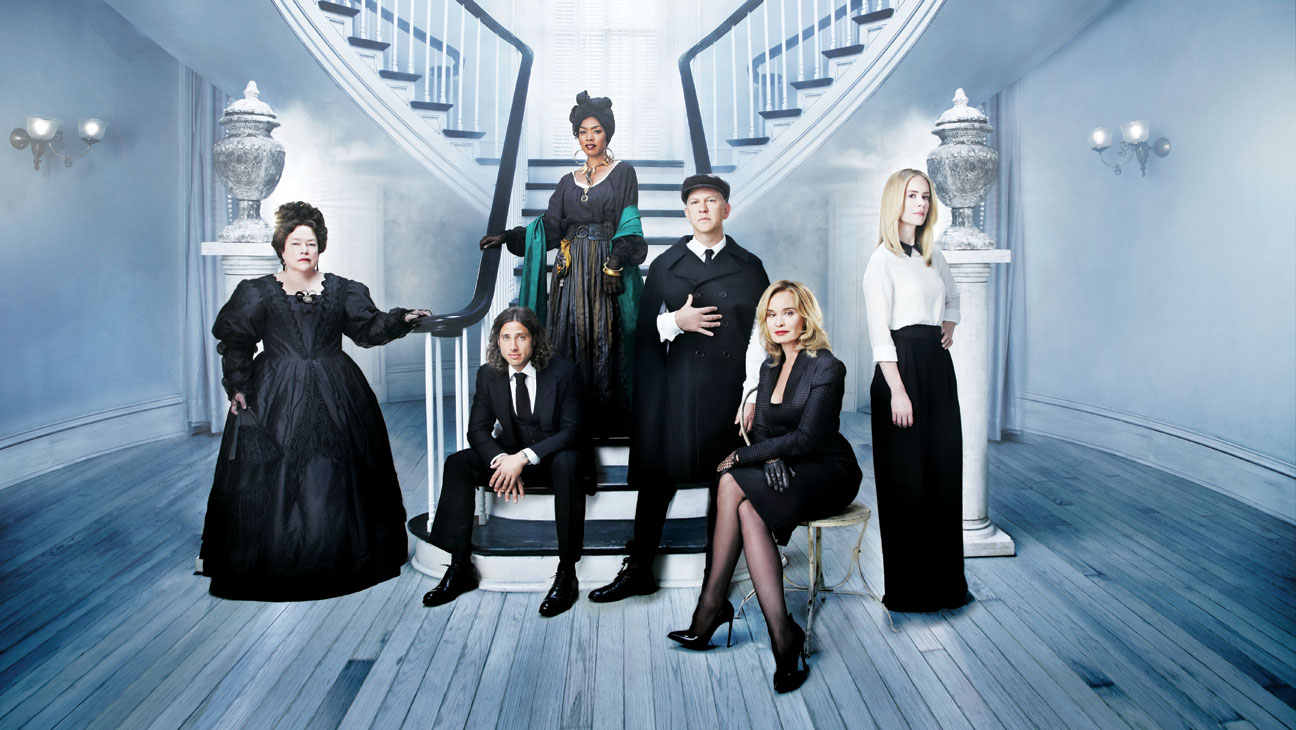
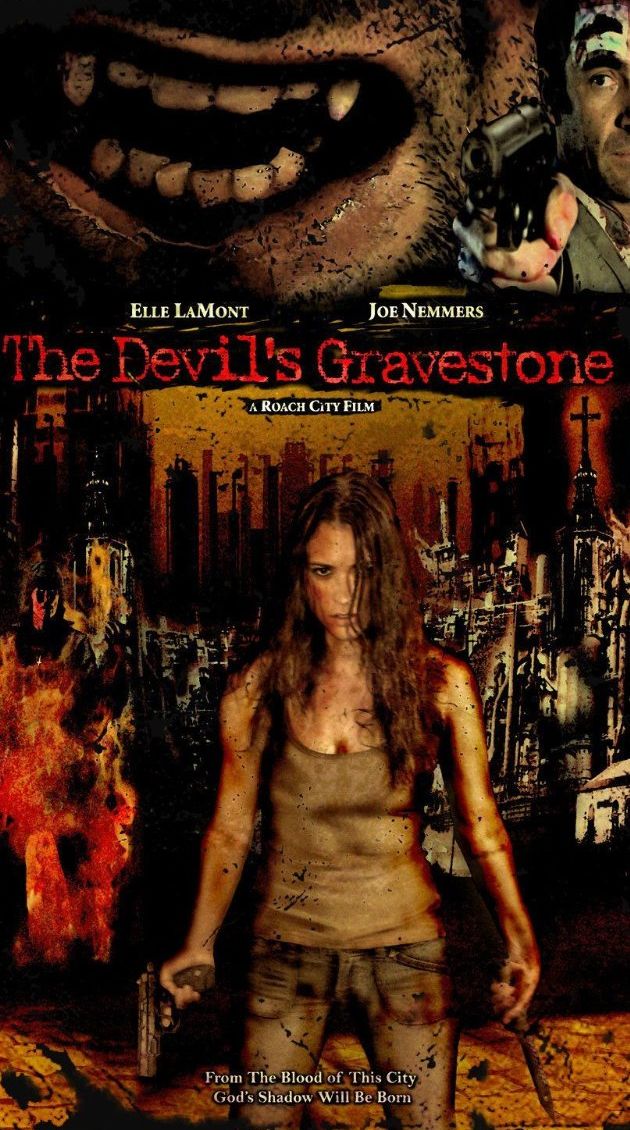 Jaq (LaMont) has devoted her life to hunting and killing the vampires who stalk the night in the metropolis of ‘Roach City’. She became this way after her husband, Cale (Red Star), was turned by one of the most notorious of serial vampires, and the first victim of his blood-lust was their young son. He vanished, and Jaq has spent the years since trying to track him down, taking out any fangster who gets in the way. She is visited by a local detective, Dick (Nemmers), who gives her some surprising news: Cale stabbed himself to death in a local cemetery. However, the body vanishes from the morgue, and it soon becomes clear that that’s not the only strange thing going on, as a woman who was sexually assaulted nearby has gone from zero to heavily pregnant in a few days.
Jaq (LaMont) has devoted her life to hunting and killing the vampires who stalk the night in the metropolis of ‘Roach City’. She became this way after her husband, Cale (Red Star), was turned by one of the most notorious of serial vampires, and the first victim of his blood-lust was their young son. He vanished, and Jaq has spent the years since trying to track him down, taking out any fangster who gets in the way. She is visited by a local detective, Dick (Nemmers), who gives her some surprising news: Cale stabbed himself to death in a local cemetery. However, the body vanishes from the morgue, and it soon becomes clear that that’s not the only strange thing going on, as a woman who was sexually assaulted nearby has gone from zero to heavily pregnant in a few days.




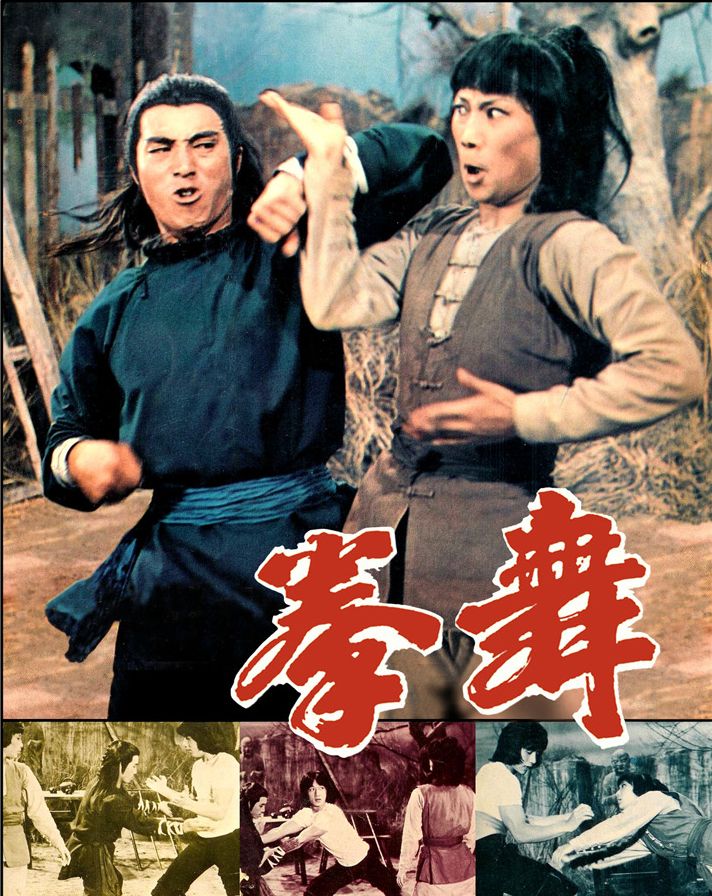

 And it didn’t take long for the fatal blow. The series was an American version of the popular Argentine crime drama Mujeres Asesinas, which had already been successfully transplanted to other Latin American countries. This edition was originally only given a trial run of sorts, with eight episodes bought, and scheduled after New Year as a mid-season replacement for another deceased ABC series. However, after miserable ratings for the first two episodes, the network cut the order to six shows, a mere ten days after the series premiere. Unaware of this, it caused us some confusion when we turned on #6, which was suddenly now #8, with the sixth and seventh having been reduced in their entirety, to “Previously, on Killer Women…”
And it didn’t take long for the fatal blow. The series was an American version of the popular Argentine crime drama Mujeres Asesinas, which had already been successfully transplanted to other Latin American countries. This edition was originally only given a trial run of sorts, with eight episodes bought, and scheduled after New Year as a mid-season replacement for another deceased ABC series. However, after miserable ratings for the first two episodes, the network cut the order to six shows, a mere ten days after the series premiere. Unaware of this, it caused us some confusion when we turned on #6, which was suddenly now #8, with the sixth and seventh having been reduced in their entirety, to “Previously, on Killer Women…”










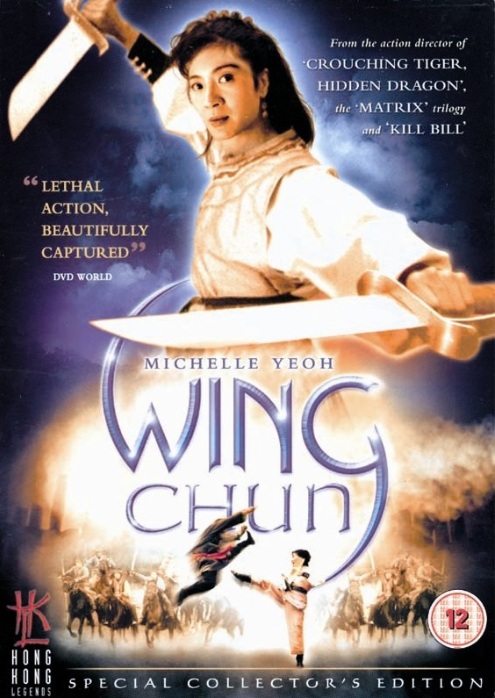


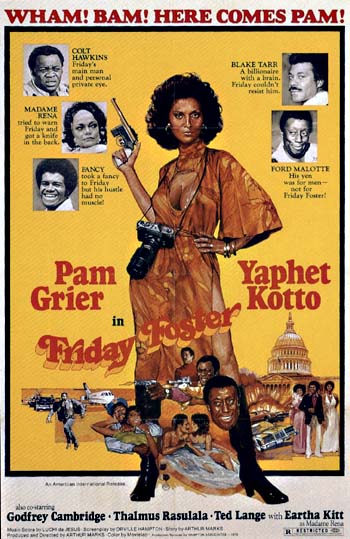

 While few shows on television are more twisted, perhaps the most bizarre thing about American Horror Story is that the creators of the franchise, Ryan Murphy and Brad Falchuk, are best known for that paragon of liberal smugness, Glee. It’s hard to think of two series more diametrically opposed, with AHS being deliciously mean-spirited, in a way much closer to Murphy/Falchiuk’s previous show, Nip/Tuck, but adding a far greater degree of viciousness. To steal a line once aimed at Margaret Thatcher by Denis Healey, AHS could fairly be accused of “glorying in slaughter,” as it romped through its first two seasons, set in a Los Angeles haunted house and New England lunatic asylum respectively. The stories it told were independent, albeit with a number of actors who appeared in both, playing different characters. Most notable among these was Jessica Lange, who showed exactly why she had won two Best Actress Oscars.
While few shows on television are more twisted, perhaps the most bizarre thing about American Horror Story is that the creators of the franchise, Ryan Murphy and Brad Falchuk, are best known for that paragon of liberal smugness, Glee. It’s hard to think of two series more diametrically opposed, with AHS being deliciously mean-spirited, in a way much closer to Murphy/Falchiuk’s previous show, Nip/Tuck, but adding a far greater degree of viciousness. To steal a line once aimed at Margaret Thatcher by Denis Healey, AHS could fairly be accused of “glorying in slaughter,” as it romped through its first two seasons, set in a Los Angeles haunted house and New England lunatic asylum respectively. The stories it told were independent, albeit with a number of actors who appeared in both, playing different characters. Most notable among these was Jessica Lange, who showed exactly why she had won two Best Actress Oscars.















